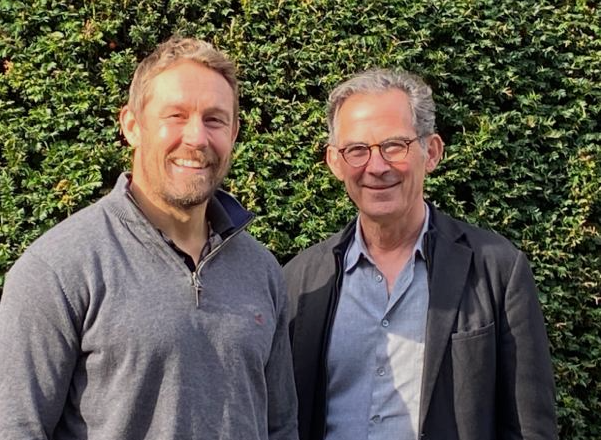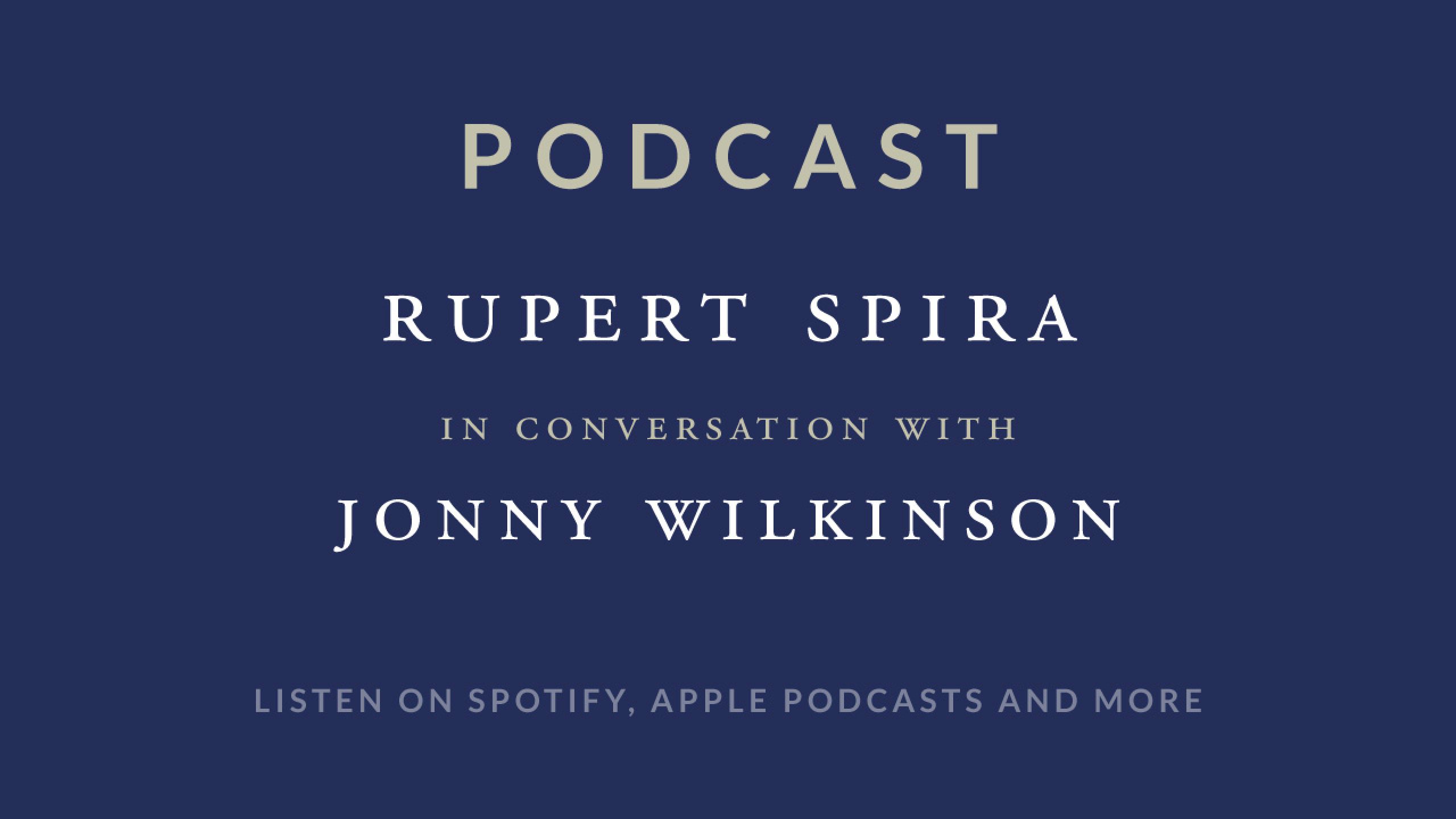WATCH ON YOUTUBE | LISTEN ON PODCAST
Wanting to bring his new perspective to the coaching of younger players, he travelled to Oxford to talk to Rupert. Their conversation ranges from the deepest meaning of ‘being in the zone’ to a definition of ‘a life well lived’; and they bring to light how an understanding of our true, essential nature is as relevant to athletes’ issues as it is for all of us.
Jonny introduces his new podcast, titled I Am, as being centred around human potential and inner transformation, and Rupert begins by saying that he sees the spiritual process as recognition of something that has always been present and is always the case. He gives the analogy of undressing at night. Our naked bodies, symbolising our essential nature, have not been transformed by putting on and taking off layers of clothing, they have simply been covered then revealed.
‘Being in the zone’, a potent and familiar phrase often used in all sorts of creative pursuits, describes a holy grail state of mind and body in which there is total flow and peak performance. This state is characterised by a total absence of thought, hesitation or separation between the doer of the activity and the activity itself. Once experienced, it is unforgettable and, unfortunately, unrepeatable through any effort. Its nature is in fact the absence of effort, and, being synonymous with inspiration, it comes spontaneously.
Jonny describes vividly how, having achieved the greatest success through inspired play on the pitch, he then experienced misery because he pushed increasingly harder to recreate the circumstances he believed had caused that success. A misunderstanding creating nothing but tension and anxiety, which further prevented the desired outcome.
As Rupert says, ‘There is no intention in the zone; you’re so at one with the moment’. The hundreds of training hours may be necessary, but if you aren’t willing to forget them before you go onto the pitch, there can be nothing fresh and new in the present moment. No space for inspiration. So the task is to train in letting go. This applies not just to athletes but to everyone.
When we can let go of the deeply ingrained habit of clinging to our past conditioning – frequently the source of feeling lack, unworthiness, unhappiness – then we have direct access to our essential nature, untouched and untouchable by any objective experience.

Most of us have known fear at some point in our lives. For Jonny it came in childhood, and he learnt to overcome and protect himself from it through achievement and perfectionism. In that process, he discovered a great ability and passion for sport.
What happens to that drive, that passion, Jonny wonders, when we understand that what lies at least partially at its roots is the need for it to fill a void, or assuage a fear? Does the passion then vanish? This, itself, is another fear to be defended against, and it is one he speculates would be voiced in the locker room should fellow athletes be exposed to ideas about meditation or returning to one’s true nature.
Rupert responds that, far from withering at the root, once the activities and expressions of a person, of an individual body/mind, are liberated from a defensive purpose, they can flow more freely and more joyfully. We simply have to face our fears, turn towards them completely, and first ask who or what is the one who is afraid? We then rest in the only possible answer to that question: ‘I am’.
Reflecting that he wishes his twenty-one-year-old self could have met this kind of understanding, Jonny ends by asking: ‘When is someone ready?’ If the understanding is always available, what does it take to be able to see it? Whilst Rupert cannot suggest at what age someone might start this exploration, he explains that very often it is precipitated by some form of collapse – heartbreak, failure, desperation. Whatever the case, the path is then simple: always return where everything that we’re seeking lies – the ‘I am’.
Watch the full conversation on Youtube below:

